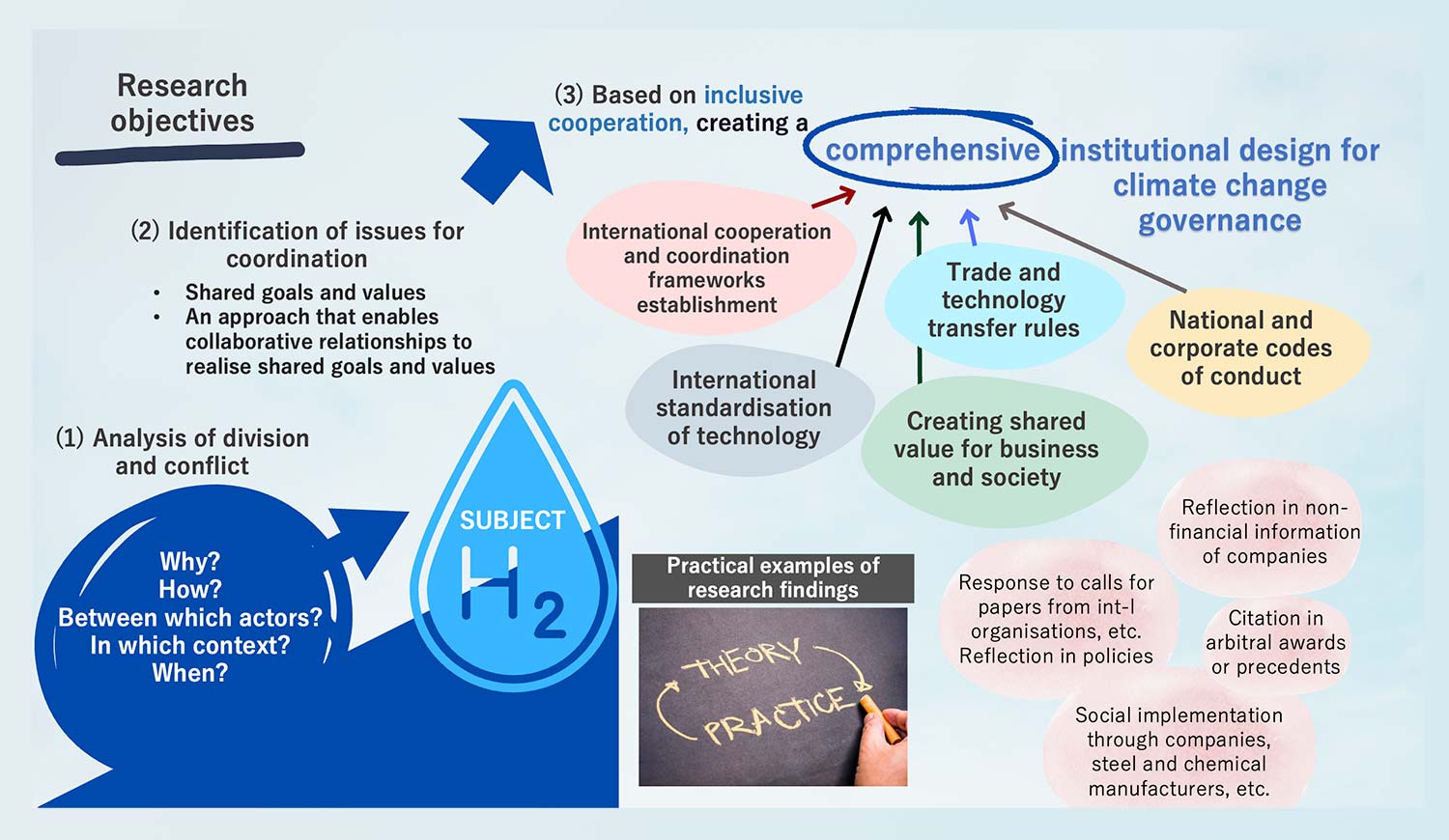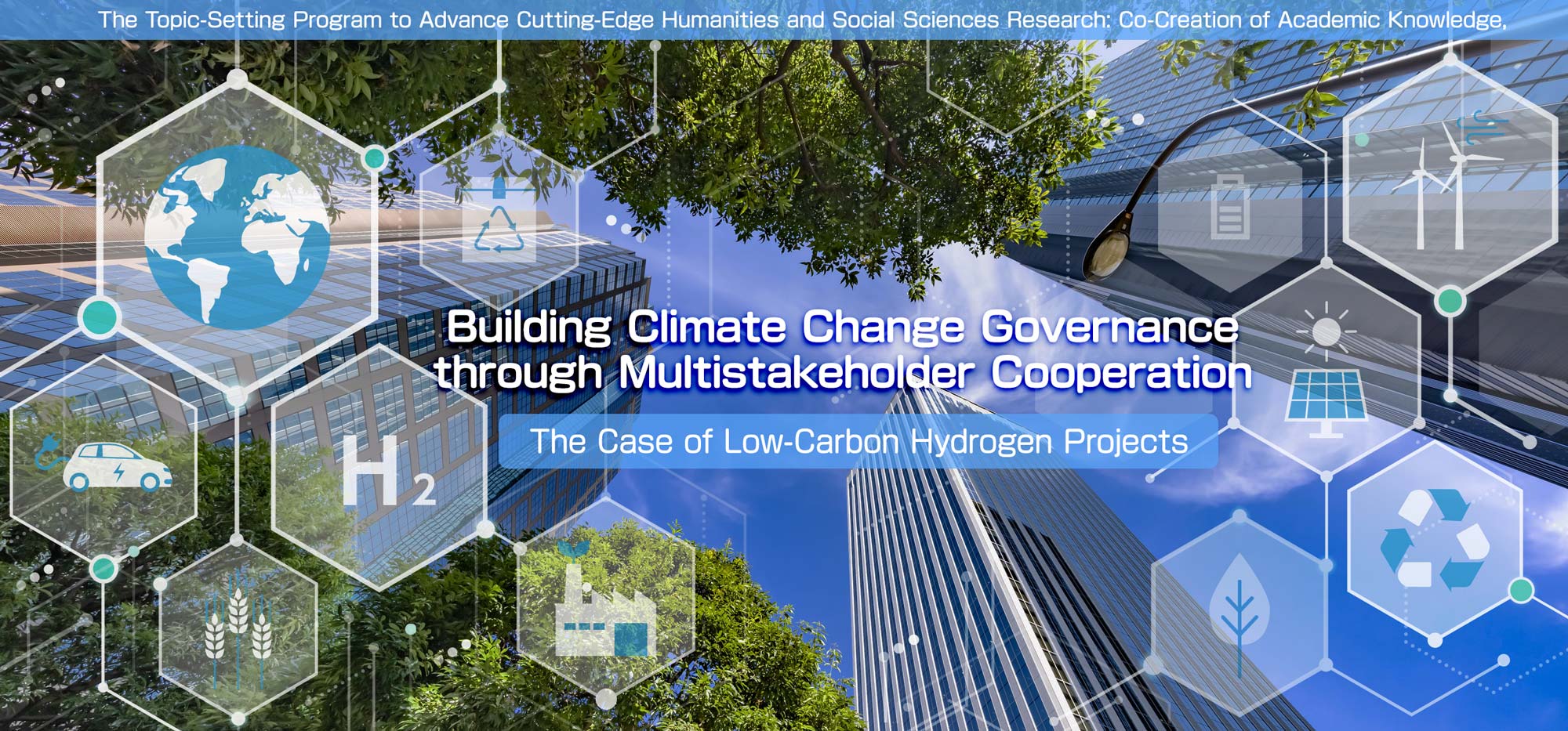
Welcome to the website of the research project “Building Climate Change Governance through Multistakeholder Cooperation: The Case of Low-Carbon Hydrogen Projects”. This project is supported by the Topic-Setting Program to Advance Cutting-Edge Humanities and Social Sciences Research: Co-Creation of Academic Knowledge, JSPS.
What's New
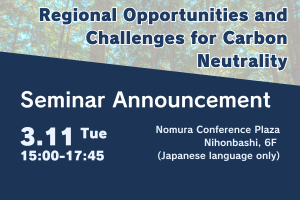
Regional Opportunities and Challenges for Carbon Neutrality
The seminar "Regional Opportunities and Challenges for Carbon Neutrality" will be held on Tuesday, March 11, 2025, from 15:00 to 17:45 at Nomura Conference Plaza Nihonbashi, Tokyo. The event will be held in Japanese.
For detailed program and registration, please see the following link (Japanese only).
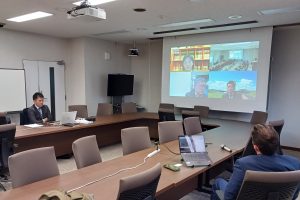
Fang-Ting Cheng at Nagoya University
Cheng Fang-Ting gave a presentation 'International Situation on the Promotion of Carbon Neutrality: Focusing on Energy and Economic Security' at the International Workshop 'Global Energy Transitions in a Changing World', co-organised by the Graduate School of International Development and the Institute for Advanced Research, Nagoya University.

Ministerial Meeting
Tomoko Ishikawa took part in the Ministerial Meeting & 47th Session of the International Energy Charter Advisory Panel (Brussels, Belgium) as a discussant at Panel III 'Perspective on Energy Transition Disputes under the Modernised Energy Charter Treaty'.

International Symposium on Green Innovation
Keisaku Higashida presented the article 'Does Environmental Policy Induce Changes in Cross-border Green Knowledge Flows?', co-authored by Yasuhiro Arai and Isamu Yamauchi, at the International Symposium on Green Innovation, Green Technology and Green Culture, co-hosted by Kyoto Women's University, Shanghai Jiaotong University, Doshisha University and Kyoto University.
Positing that disagreements between diverse actors have hindered effective climate change mitigation measures, our multidisciplinary study aims to propose ways to overcome division and fragmentation in climate change governance. Focusing on low-carbon hydrogen projects, we present ways of building effective and sustainable climate change governance through multi-stakeholder cooperation. In this study, experts from law, political science, economics, business administration, and chemical engineering collaborate in investigating climate change governance from the following five perspectives:
-
Climate Change and International Politics;
-
Climate Change and Trade;
-
Corporate Climate Responsibility and Civil Society;
-
Climate Change and Corporate Management;
-
Climate-change-related Technologies and CC(U)S.
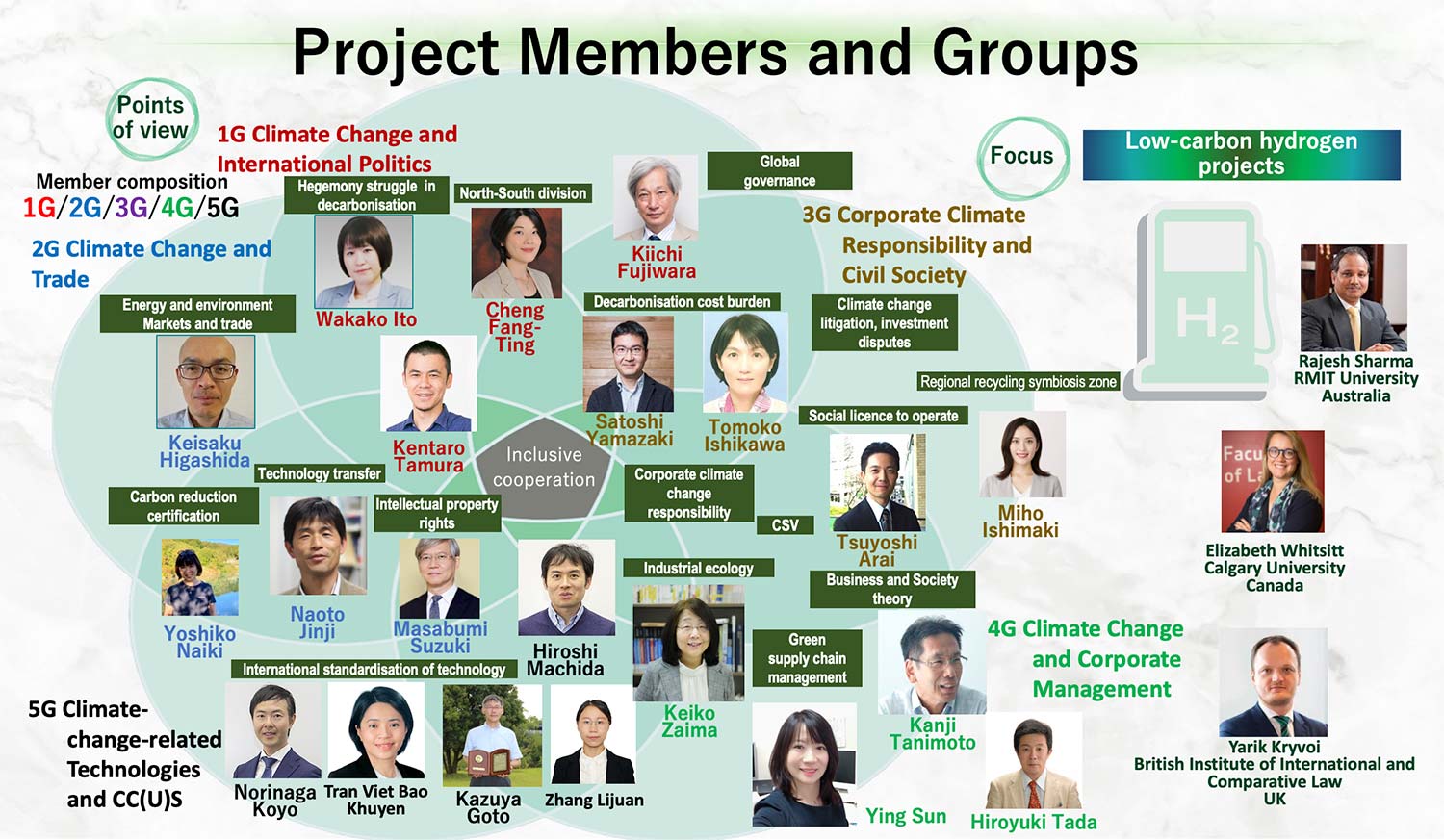
We aim to propose a comprehensive institutional design that fosters inclusive cooperation between various stakeholders such as states, business, NGO‘s, citizens, and experts, focusing on low-carbon hydrogen projects. This design encompasses the issues of low-carbon hydrogen certification standards, trade and technology transfer rules, codes of conduct for countries and companies, models for shared value creation, and the international standardization of technology.
